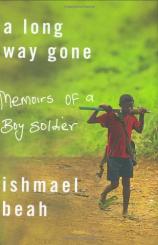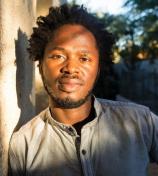Reading Group Guide
Discussion Questions
A Long Way Gone: Memoirs of a Boy Soldier

1. How familiar were you with the civil wars of Sierra Leone prior to reading A Long Way Gone? How has Ishmael’s story changed your perception of this history, and of current wars in general?
2. Chapter seven begins with the story of the imam’s death, followed by Ishmael’s recollections of his father and an elder blessing their home when they first moved to Mogbwemo. How do the concepts of faith and hope shift throughout this memoir? What sustains Ishmael emotionally and spiritually?
3. Chapter eight closes with the image of villagers running fearfully from Ishmael and his friends, believing that the seven boys are rebels. How do they overcome these negative assumptions in communities that have begun to associate the boys’
appearance with evil? What lessons could world leaders learn from them about overcoming distrust, and the importance of judging others individually rather than as stereotypes?
4. What did Ishmael’s parents teach him about being a man? How did he define manhood once he began his long walk west? What general life lessons were his parents able to teach him that sustained him during his brutal passage from boyhood, and that he carries with him to this day?
5. Discuss the role of American hip-hop culture in creating a “soundtrack” for Ishmael’s life. Why are rappers so appealing to him?
6. The boys’ discovery of the Atlantic Ocean and their encounter with a cheerful fisherman who heals and feeds them is followed by the tragedy of Saidu’s death after a bird falls ominously from the sky. Discuss Ishmael’s relationship with the natural world. In what way is he guided by the constancy of the earth and sky?
7. When Ishmael arrives at the fortified village of Yele in chapter twelve, what do you discover about the way he began his military career? Was his service, and that of his equally young friends, necessary? What made his conscription different from that of drafted American soldiers serving in previous wars?
8. Ishmael tells us that some of the boys who had been rehabilitated with him later became soldiers again. What factors ensured that he could remain a civilian?
9. Storytelling is a powerful force in Ishmael’s life, even providing a connection to his future mother, Laura Simms. What traits make Ishmael a memorable and unique storyteller? How does his perspective compare to the perspectives of filmmakers, reporters, or other authors who have recently tried to portray Africa’s civil wars?
10. Ishmael describes his use of Krio and many tribal languages to communicate, as well as his ability to quote Shakespeare’s Elizabethan English. What communities and empires are represented in his many speech styles? In which “villages,” from the relatively new UN to the centuries-old Mende and Temne settlements, does the greatest wisdom lie?
11. How does Ishmael’s concept of family change throughout the memoir, from his early life in Mattru Jong, to the uncle with whom he is reunited, to his American family with Laura?
12. It takes many weeks before Ishmael feels comfortable with the relief workers’ refrain that these events are not his fault. What destructive beliefs had he become addicted to? What states of deprivation and euphoria had his body become addicted to?
13. What universal truths does Ishmael teach us about surviving loss and hunger, and overcoming isolation?
14. Ishmael’s dramatic escape during the later waves of revolution concludes with the riddle of the monkey. Is his dream of obliterating the monkey—and its violent endgames—closer to being fulfilled in these early years of the twenty-first century? What would it take for all of humanity to adopt Ishmael’s rejection of vengeance?
15. Ishmael gives credit to relief workers such as Esther, in conjunction with organizations such as UNICEF, for rescuing him. He has dedicated his life to their cause, studying political science and speaking before a broad variety of groups, ranging from the Council on Foreign Relations to the Center for Emerging Threats and Opportunities at the Marine Corps Warfighting Laboratory. What steps has he inspired you to take to help end the use of child soldiers? How can each of us join Ishmael’s cause?
16. After reading the chronology of Sierra Leone’s history, what reasons can you propose for the coups in Ishmael’s homeland? Did the arrival of Portuguese slave traders, or the later colonization by the British, contribute to Sierra Leone’s twentiethcentury woes? What did you discover about the motivations of the army soldiers versus those of the rebels? In your opinion, what made the leaders of the RUF so ruthless for so long?
A Long Way Gone: Memoirs of a Boy Soldier
- Publication Date: February 13, 2007
- Genres: Nonfiction
- Hardcover: 240 pages
- Publisher: Farrar, Straus and Giroux
- ISBN-10: 0374105235
- ISBN-13: 9780374105235








